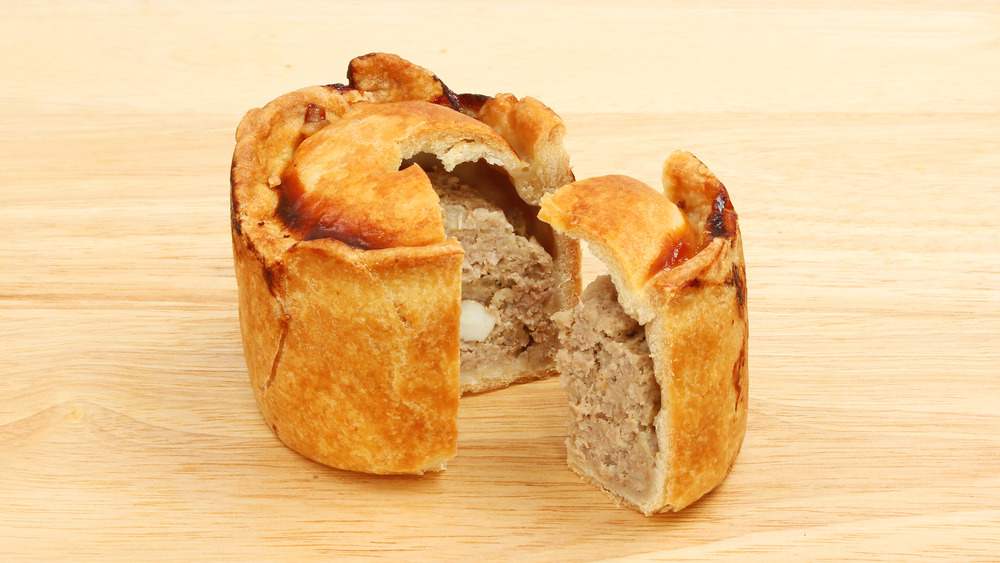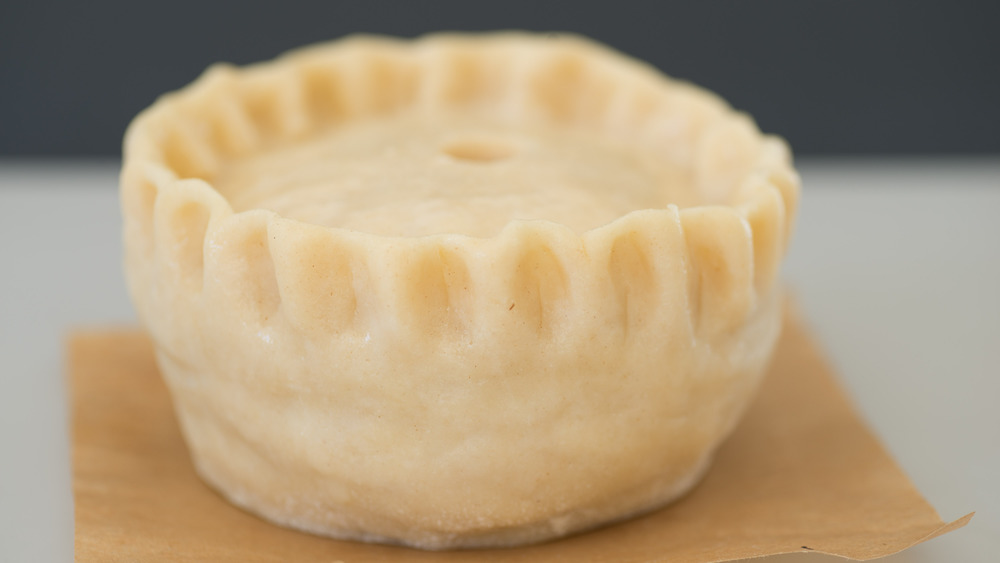The Real Reason Your Hot Water Crust Is So Hard
Pastry can be finicky and difficult to work with, which is why it's helpful to understand the reason behind some of the more common mistakes. No matter the kind of pastry, the two glaring mistakes that people often run into are overworking the dough and allowing the dough's surroundings to get too warm (via Reader's Digest). Overworking the dough can cause it to have a coarse texture. When the dough is too warm, it often makes the pastry hard to handle, which can also lead it to be handled too much.
Hot water crust can certainly suffer from these two mistakes due to the characteristics of the pastry. This kind of pastry should be crispier than normal pie dough, and also more crumbly, whereas pie dough is flaky (via Food52). Hot water crust shouldn't be as tender as pie dough because it is more pliable to work with. However, it also shouldn't be tough. All of these qualities give hot water crust dough particular hallmarks to look out for, and all of them are very useful given the types of bakes you would use this pastry for. Hot water crust is best for filled pies that are removed from molds so they can hold themselves up and together without supports.
Why your hot water crust pastry dough is too hard
According to Reader's Digest, when hot water crust pastry is hard, the reason behind it is usually that there wasn't enough fat or liquid added to the dough. Without enough of either, the dough is more difficult to work with which leads you to overwork it. Even if you didn't overwork the dough itself, trying to repeatedly roll and mold the dough is as bad as overworking the pastry.
Hot water crust pastry can also crack or be dry and hard to mold to your form. If the pastry cracks, it's typically because the liquid wasn't boiling when it was combined with the flour. The dough may not have been worked enough either or it could have cooled too much before rolling it out. Dry pastry often occurs for similar reasons, though overworking doesn't cause this.
When making hot water crust pastry, Food52 explains it's important to look for dough that is still warm but smooth and quite pliable. The pastry has a tendency to tear, so don't worry if it does rip. Keep in mind you shouldn't add too much additional flour because it will cause the dough to cool too quickly and result in a dry dough.

